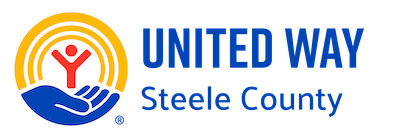The Role Of The Board
I am proud to say that I work for one of the bests Boards around. They are the unsung heroes of the work of United Way of Steele County, keeping us well governed, transparent, accountable, solvent, and focused on our mission. Most of this work is behind the scenes but it is definitely work and takes commitment and time to be effective.
Per our Bylaws, United Way of Steele County can have between 18-25 members of the Board active at any given time. We’ve determined that, for our standing committees and other work, we need to have a minimum of 20 Board members. Less than that and members need to be on multiple committees – which can be burdensome on these important volunteers who also have careers to manage.
So what does a nonprofit board do? It depends on the organization’s needs and its structure. You may have heard the term “working board” or “governance board.” Typically a working board is one that does the primary operational work of the agency. They won’t have staff – or have very little staff – and divide the work among committees and board volunteers. Governance boards, or Policy Boards, have more of an oversight and guidance authority. They will employ a CEO or Executive Director to do day-to-day management, operations and supervision of the staff, but Board members will populate committees which have direct guidance over some portion of the agency’s mission.
At UWSC we have a governance, or policy, type board. Their first order of business is to supervise and advise me, the Executive Director, on the management of the organization. We work together to set an annual budget but they have final approval of that budget and empower me to execute it. Six times a year at our meetings they review very detailed financial reports to make sure we are on track.
The Board is responsible for setting and reviewing our policies. We do a full review of all our policies every three years to ensure our policies are fair and realistic and apropos of our mission. The Board also takes into account any community changes that need to be accommodated in our policies. We are doing this review again this year and it becomes a check on our practices to ensure they match the policies.
The UWSC Board also oversees our annual grant making process (called Community Investments). The Community Investments Committee (CIC) administers everything from our grant forms and the questions we ask to setting the grant budget and making the final funding decisions with a panel of community members.
Our Board is responsible for planning for our future – the future of the organization and future funded services in our community. They do this through strategic conversations at our Board meetings, participation in community assessments and town hall meetings, and through the work of the Strategic Impact committee.
One additional and vital duty for the United Way of Steele County Board is that of community engagement. Board members represent UWSC in the community. They publicly identify themselves as UWSC Board members and share our messaging at various gatherings and meetings. Conversely, they are the main conduit for feedback from the community to our organization. They gather ideas about what we can be doing more of in the community or suggestions for policy or process improvements. In some ways they are like elected officials. They are representing you as well as themselves. They also are the prime advocates for citizens who receive funded services. We keep those community members in mind throughout all of our decision making functions – policy building, fundraising, budgeting, staffing – because they are the reason UWSC exists.
Who gets selected for United Way of Steele County Board of Directors? We have a number of formal and informal criteria. Board members should be residents of or employed in Steele County. All of our Board members are individual UWSC donors. Additional criteria includes having representatives of major business donors such as Federated, Viracon and Wenger; representatives from government; and representatives from key small businesses. We want to make sure the people that support us have a voice in how we do our work and in critical decision making. We also look for certain advisory skills which would benefit our organizational effectiveness and other processes such as legal, business, marketing, fundraising, and finance.
Finally, specifically who is on our Board? Dave Albrecht – President; Janie Rolloff – Vice-President; Shane Sattler – Secretary; Rachel Peterson – Treasurer; Faizal Lakha – Vice President, Community Investment Committee; Jeff Elstad – Vice-President, Strategic Impact Committee; Kris Busse, Matt Durand, Laura Elvebak, Ryan Gillespie, John Havelka, Keith Hiller, Jeff Jollay, Jason Kleeberger, Karen Legault, Pat McDermott, Peng Olson, Stephanie Olson, Todd Trout, and Christina Wetmore – members. I thank each and every one of them for their service to our community and the support and guidance they give to me and the rest of the staff at United Way.
For more information about nonprofit boards:
http://www.minnesotanonprofits.org/nonprofit-resources/leadership-governance
https://boardsource.org/resources/board-responsibilities-structures-faqs/
https://www.councilofnonprofits.org/tools-resources-categories/boards-and-governance
https://www.boardeffect.com/blog/board-governance-models-a-comprehensive-list/
To find a local board to join:
https://volunteerconnect.unitedwaysteelecounty.org/
